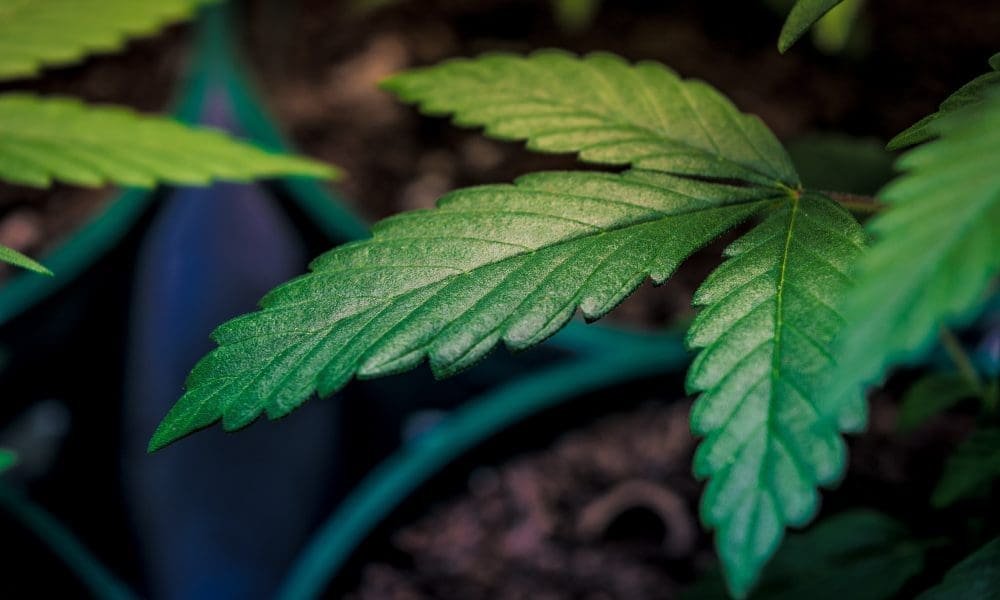Billboards represent the only form of advertising where it is impossible to change channels, turn pages, or click away.
On Tuesday the Joint Committee on Cannabis Policy listened to testimony about an industry issue: Should cannabis businesses be permitted to run promotions, discounts or sales?
Cannabis companies are subject to strict restrictions on how they can advertise. The advertising of cannabis dispensaries in media that are not expected to have 85 percent older audience members is strictly prohibited.
In June, the House approved a package of marijuana legislation that didn’t address advertising. Senate leadership has not yet indicated whether they will consider cannabis legislation during this legislative session. House lawmakers have filed five separate bills that would make advertising rules more strict—such as by banning billboard advertisements for cannabis products or changing how fines are imposed for advertising violations—to protect young people. Meanwhile, another bill filed by Sen. Dylan Fernandes (D) of Falmouth—which has strong support from the industry—seeks to loosen restrictions on discounts and promotions to help struggling business owners compete more effectively.
Many cannabis professionals have argued for more advertising to even the playing field against multi-state cannabis businesses that advertise already because they are able to afford a fine. In May 2024, the Cannabis Control Commission released an advisory stating that it had discovered that certain cannabis businesses from Massachusetts were violating advertising regulations.
Cannabis operators claim they also compete with hemp intoxicants, because hemp has proliferated throughout the state thanks to a federal loophole which defines cannabis and hemp differently. This means that hemp products—even though they contain the same main intoxicating substance—are not bound by the same advertising rules.
Nike John told CommonWealth Beacon, “A business’s ability to attract new clients is a function of advertising.” John owns The Heritage Club, a dispensary located in Boston. He was also part of the initial cohort for the Cannabis Control Commission’s Social Equity Program. All businesses have a marketing function.
In Massachusetts, the 2016 ballot question which legalized cannabis for recreational use proposed regulations similar to those that govern alcoholic beverages. However, cannabis is subject to stricter restrictions. Advertisements and discounts are permitted by liquor stores and breweries.
This bill, which is being promoted by the cannabis industry, would prevent the Cannabis Commission from banning “marketing, advertising and branding for sales, discounts and customer loyalty programmes.”
Phil Smith, the owner of Freshly Baked Co., a social equity company in Taunton, said to CommonWealth Beacon: “Since cannabis was legalized, businesses were held to different standards. These include a standard that prevents them from offering simple tools, such as promotions, discounts or loyalty programs. Every other industry does this without question.” This bill leveled the playing field. This bill gives social equity small businesses, like Freshly Baked, a chance to compete and grow while building relationships with the community in the same manner as liquor stores and beer breweries.
Some opponents claim that marijuana is dangerous for children, and advertising could encourage youth use of cannabis.
Amy Turncliff, neuroscientist and public health activist who provides therapeutic consultation on addiction disorders, said: “For almost 10 years Massachusetts has not enacted policies to protect the public from harms caused by high THC marijuana.” The simple and effective solution is to ban billboard advertising.
David Jernigan – a Boston University School of Public Health professor who authored a cannabis policy book – testified on behalf of a proposed bill which would prohibit all nonprescription advertising of marijuana. He found in a study of 172 cannabis consumers between 15-19 years old that teens who saw cannabis billboards, even if they did so rarely, were five times as likely to have a marijuana use disorder.
Jernigan said that billboards were the only form of advertising where it was impossible to change channels, turn pages, or click away. If they are in an environment where you are young, then you will see them.
House legislation passed on cannabis would have increased the purchase and possession limit for marijuana, allowed businesses to own twice as many dispensaries, created a legal hemp beverage market in liquor stores and restructured the cannabis commission. It also would crackdown on intoxicating hemp products and ease existing regulations for medical marijuana companies. Senate hasn’t indicated if cannabis reform is a top priority for this legislative session.
Adam Gomez, a senator from Springfield and one of the chairmen of the Cannabis committee said: “The work ahead of us is urgent and profoundly impactful.” It is important to note that the cannabis industry in Massachusetts has just begun and will continue to grow. The decisions we make now about its future can have a lasting impact on public health, worker rights, economic growth, equity and other factors.
This article first appeared on CommonWealth Beacon and is republished here under a Creative Commons Attribution-NoDerivatives 4.0 International License.





